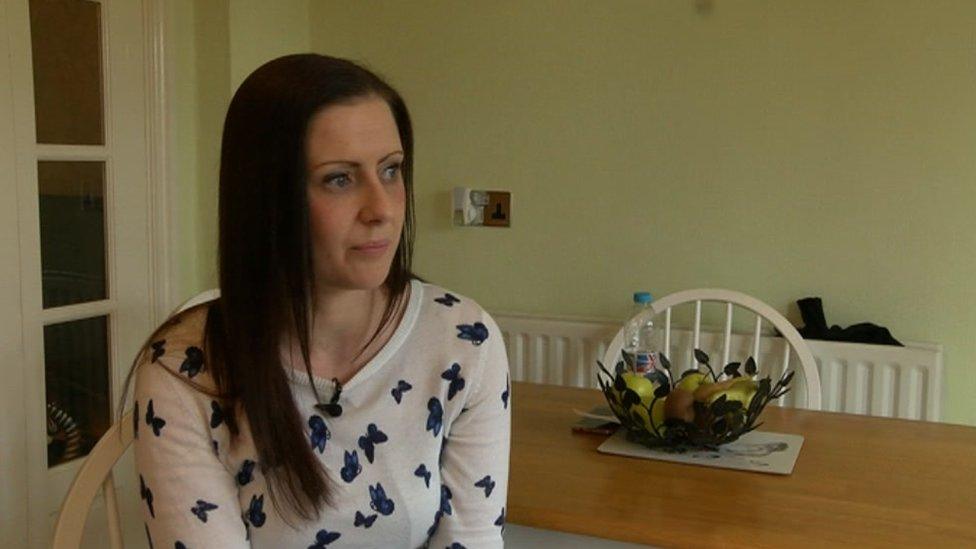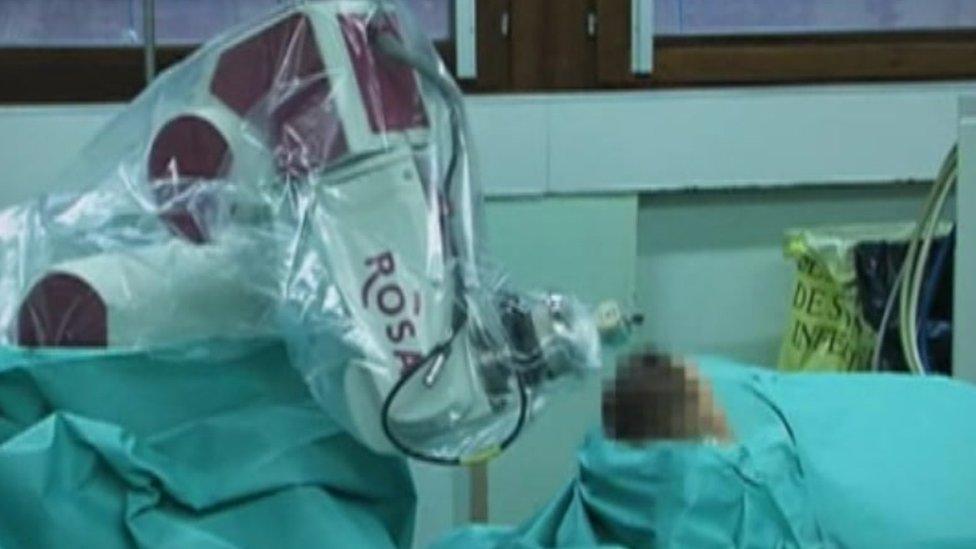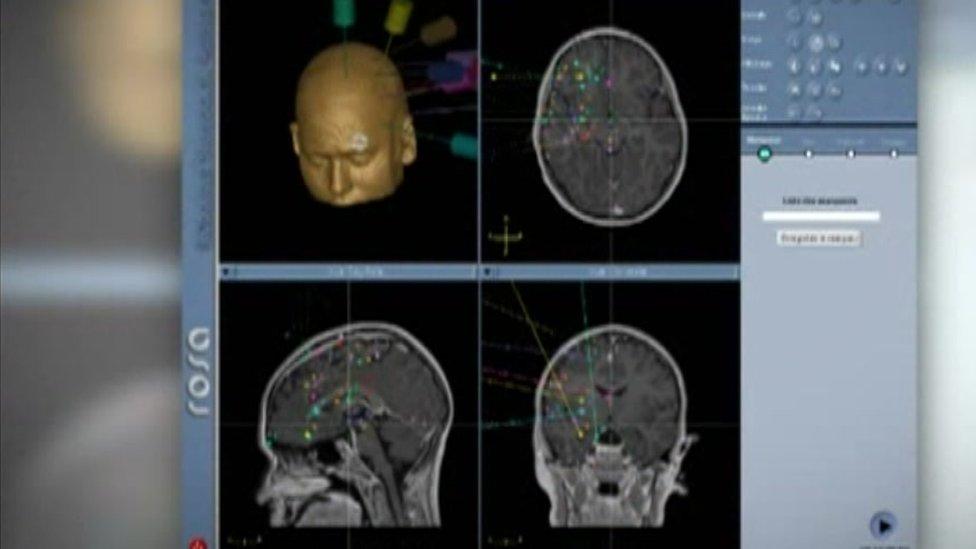Surgery robot offers hope to seizure sufferer
- Published

Leanne Hall said the technique gave her "hope" of being seizure-free
A woman who has had severe epilepsy since undergoing brain surgery hopes a new robotic technique could end her seizures.
Leanne Hall, 30, from Hull, developed a brain tumour as a teenager and has had three operations to remove the tumour.
Scar tissue and the remains of the tumour have left her with epilepsy and daily seizures.
Miss Hall is due to undergo specialist surgery using the ROSA robotic surgery assistant in Sheffield in March.
The city's Royal Hallamshire Hospital says it is the only NHS hospital in the UK with ROSA. Charity Neurocare has launched a £250,000 appeal to secure its future.

The robot's arm mimics that of a human and can hold equipment as thin as a needle
Miss Hall had two surgeries to remove her tumour in 1993 and had further surgery in 2004. She said the seizures she had been left with were extremely restrictive.
"I am not allowed to go out of the house on my own as it is too dangerous.
"All my life I have wanted to be normal; drive, get a job, get a house but I just have not been able to."
She said the new treatment had given her a "light at the end of the tunnel".
"I have never had the chance to say to someone 'I might be seizure-free this year' and I find it amazing that something might be able to do that," she said.


The ROSA takes 3D imagery of the brain allowing surgeons to pinpoint the location of a seizure or tumour
ROSA facts
Ability to construct 3D image of brain before surgery
Pinpoints and locates surgical site with GPS-like accuracy
Enables surgery for epilepsy for patients who have small trigger seizure points
Is able to operate on deep-seated tumours that are difficult to locate
Reduction in surgical time of around 40% which cuts costs
Reduces possibility of human error
Source: Neurocare

ROSA uses an advanced computer system to create precise 3D maps of a patient's brain, helping neurosurgeons to plan the best route for surgery.
The surgeon then guides the robot's arm and instruments to the exact location of a seizure or tumour.
The accuracy of the robot cuts surgery time and improves recovery times.
Sheffield consultant neurosurgeon Mr Dev Bhattacharyya said: "The first operation I undertook took two-and-a-half hours compared to six.
"Through its pinpoint precision we are now able to reach areas of the brain we would previously not have been able to, which is fantastic news for patients."